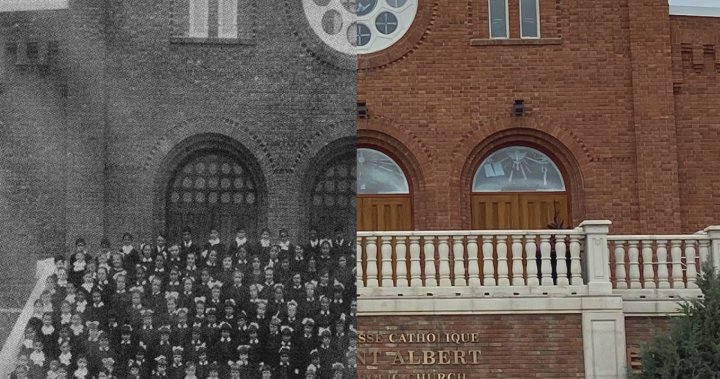A search will soon begin using ground penetrating technology in the hopes of identifying unmarked graves of residential school victims in St. Albert.
Métis local 1904 president Bruce Gladue said the land where the Covenant Health Youville retirement home now stands is the location of the former St. Albert Youville residential school.
“The majority of the children were Métis,” Gladue said.
The recent discoveries of more than 1,000 unidentified graves in Canada led the St. Albert Métis community to want to conduct its own search of the area around the former school.
Read more:
U of A assistant professor says it’s time to have hard conversations about Canada’s history
“We’re going to be doing research, as much research as we can do to identify as many of the children registered on the books and then doing some ground truthing to see if there’s any that have been unmarked and undiscovered,” Gladue said.
Gladue said there are two sites of interest: the area around the school and the Métis River lot 56, which is about six kilometres away from the former school.
“We want to try and identify as many as we can by name,” Gladue said.
Read more:
‘We knew it was there’: Former B.C. chief says unmarked graves near Cranbrook need more context
To do that, it has enlisted the help of Métis archaeologist Kisha Supernant.
“For me, it’s very personal. This is a school where some of my relatives appear in the records,” Supernant said.
Supernant said she believes it is likely she will find unmarked graves, and to do that, she will use her skills and technology.
“My portion is going to focus on using remote sensing techniques, ground-penetrating radar and similar techniques to look below the surface of the earth,” Supernant said.
“To have her skill set and knowledge advising us as we go through this, as well as having her legitimizing the ground truthing with her equipment, it is going to be a good thing for us,” Gladue said.
Read more:
Alberta pledges $8M to help First Nations locate and honour graves at residential schools
Gladue said he hopes this work will start in the next week or so and is also working on a proposal for provincial and federal government funding to expand search efforts.
“To be immersed in it as we go through this and start to get into the nitty-gritty part, I think it’s going to get even more emotional but it’s all part of the healing process though,” Gladue said.














































